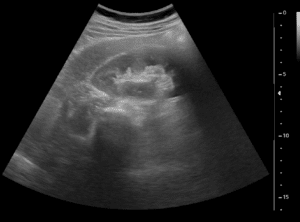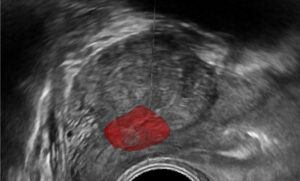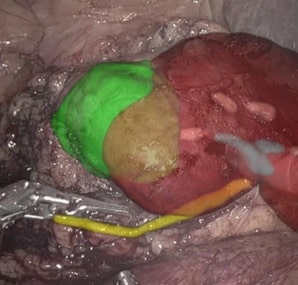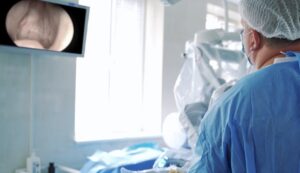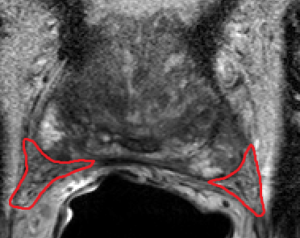Prostate cancer is the second most prevalent cancer in men, affecting about 1 in 8 men during their lifetime. Often, patients will have an MRI scan as part of regular screening. MRI images identify regions and details such as the prostate boundary, zones and tumors, which radiologists use to calculate the Prostate Imaging Reporting and Data System (PI-RADS) score. The PI-RADS score ranges from 1 to 5 (low to high probability of clinically significant cancer) and provides the basis for diagnosis and treatment. Patients with a PI-RADS score of 3 or more usually undergo a prostate biopsy to detect suspected cancer.
Calculation of the PI-RADS score may be influenced by external factors such as experience, training or fatigue of the radiologist, which introduces variability into the process. Artificial Intelligence has the potential to serve as a valuable aid in accurately and robustly calculating the PI-RADS score, as AI algorithms output numerical values, which increase diagnosis objectivity and repeatability. For example, gradients and color distributions can be quantified to analyze the tumor and determine the homogeneity of the tissue. The data obtained from AI algorithms assists physicians in calculating the PI-RADS score, leading to a more appropriate course of action. These advances in determining crucial details such as the size, location and state of the cancer allow physicians to choose the most suitable treatment for the patient.
MRI-generated images of the prostate and surrounding tissue may be used by physicians to improve biopsies. During a biopsy, the prostate is sampled using a needle that is guided by ultrasound to provide real-time images of the tissue. Detailed MRI scans can be registered with live ultrasound to improve the accuracy of the biopsy and target abnormal tissue. Advanced AI algorithms are being trained to compensate for differences between the ultrasound and MRI images to enhance registration, and thus improve guidance to tumors. In addition, probe tracking provides 3D anatomical information to enhance navigation.
At RSIP Vision, we work closely with physicians to improve the prognosis of patients with prostate cancer. Physicians define the ground rules to detect and segment lesions, boundaries, and zones of the prostate. We incorporate these with computer vision and deep learning techniques to provide tools that help radiologists calculate the PI-RADS score in a more objective way and improve guidance during prostate biopsies.

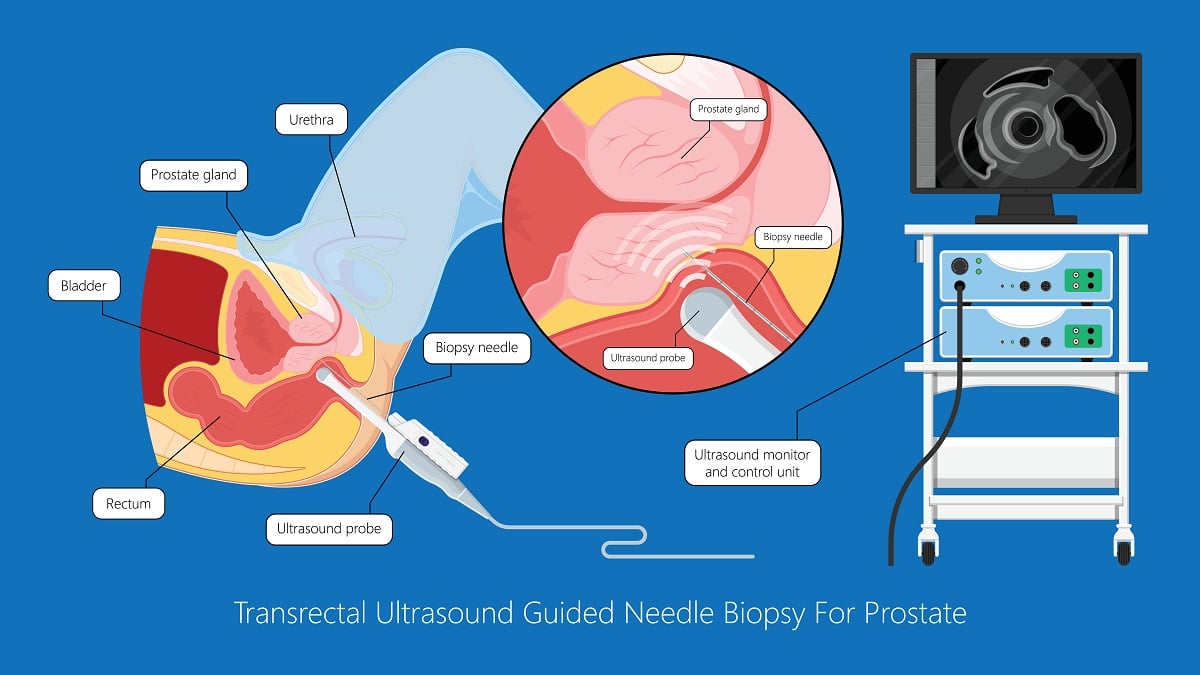
 Urology
Urology